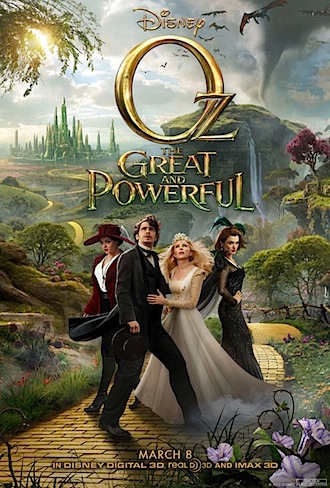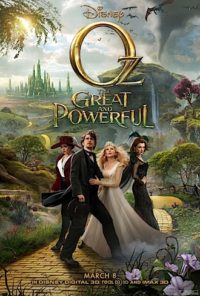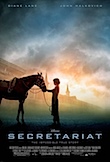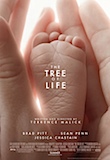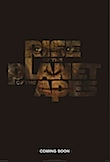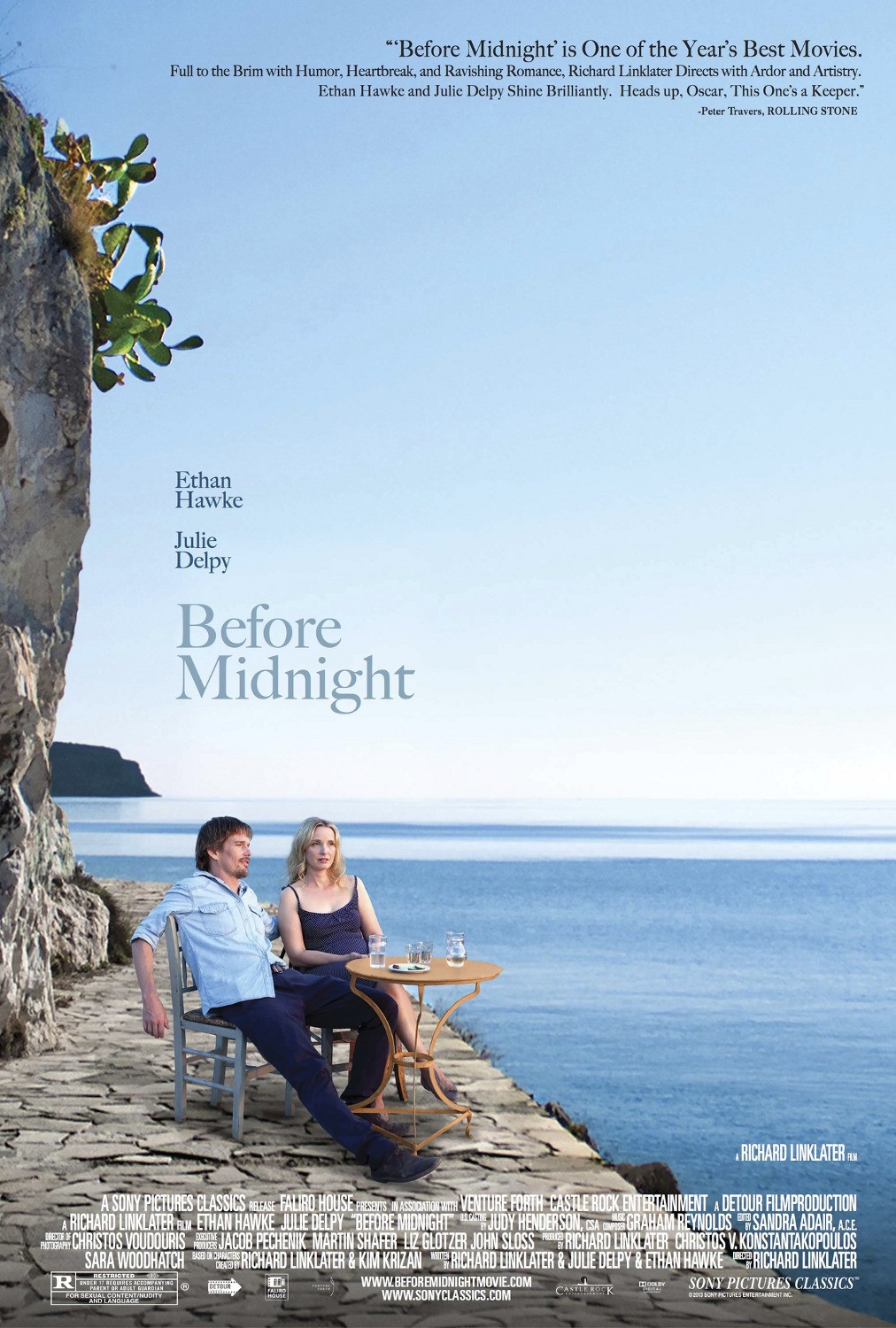

As is so often the case at this time of year (usually related to 48 Hours commitments) I am a little behind on my reviewing. This weekend I caught up on a lot the actual watching (although apologies to John Davies who sent me a screener of Remembrance that I haven’t yet sat down and watched) so now I will try and rustle up another one of my trademark collections of “Capsule Reviews of Questionable Utility”.
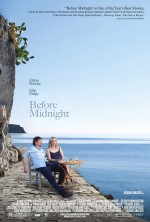 Of all the movies I’ve seen so far this year, Linklater, Delpy and Hawke’s Before Midnight (after three movies I think it’s fair to credit authorship severally) is the one that has stuck in my brain the longest. In it, we catch up with the lovers from Before Sunrise (1995) and Before Sunset (2004) as they reach the end of an idyllic vacation in Greece. Hawke’s Jesse is wondering whether he should try and spend more time with his teenage son who lives with his mother in the States. Delpy’s Celine is about to start a dream job back in Paris where they currently reside with their two adorable daughters.
Of all the movies I’ve seen so far this year, Linklater, Delpy and Hawke’s Before Midnight (after three movies I think it’s fair to credit authorship severally) is the one that has stuck in my brain the longest. In it, we catch up with the lovers from Before Sunrise (1995) and Before Sunset (2004) as they reach the end of an idyllic vacation in Greece. Hawke’s Jesse is wondering whether he should try and spend more time with his teenage son who lives with his mother in the States. Delpy’s Celine is about to start a dream job back in Paris where they currently reside with their two adorable daughters.
They are at a crossroads but, as the film makes clear, when are we ever not? Delpy is magnificent, creating a wondrous, beautiful, insecure, infuriating and righteous woman who is simultaneously proud and frustrated at the role she has found herself playing. Watching her I was thinking about a couple of relationships of mine that I ended. Maybe I was a little bit hasty. Maybe I wasn’t really listening.


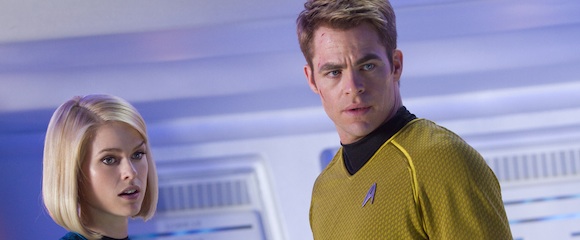
 A re-watch of Star Trek on Wednesday night confirmed my thoughts from the original review. It worked so well, on so many levels, that by the end I was eagerly anticipating my Friday night reunion with
A re-watch of Star Trek on Wednesday night confirmed my thoughts from the original review. It worked so well, on so many levels, that by the end I was eagerly anticipating my Friday night reunion with 